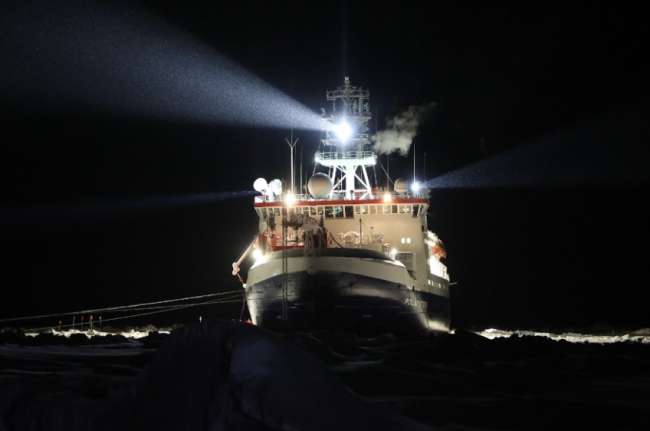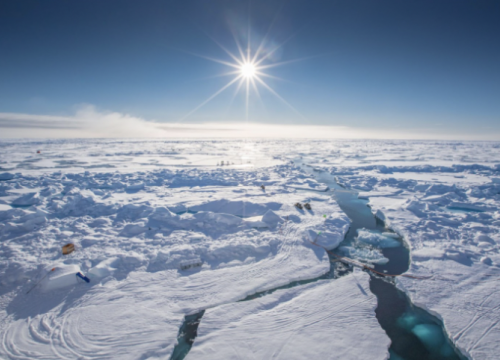Seasons and Light in the Arctic
In this activity, student's will explore why we have seasons and changing daylight throughout the year by graphing different daylight hours around the world. Learning will be guided with the driving question: How do we understand the Arctic light and seasons?
Context for Use
How do people around the world experience the seasons and light?
MOSAiC was an unprecedented international research expedition to study the physical, chemical, and biological processes that couple the Arctic atmosphere, sea ice, ocean, and ecosystem. The MOSAiC Expedition team studied many climate processes that are greatly impacted by the seasons and daylight experienced in the Arctic. In this one hour lesson, students will have the opportunity to explore why the Arctic’s seasons and daylight are different from other places in the world.
Seasons and Light in the Arctic is one of four activities in the The Drifting North Polar Planetarium Experience Unit that invites students to explore what it was like to participate in the MOSAiC expedition to the North Pole.

Polarstern during MOSAiC Leg1. By Heather McFarland.
Goals Header
What Students Will Do
In this lesson, students will:
-
Learn about why we have seasons, polar night and day, and Arctic Indigenous Knowledge.
-
Watch a video that visually explains why the Earth has seasons and what it was like for scientists to work in the Central Arctic during Polar Night.
-
Think about and answer:
-
How might the seasons change when moving closer to the Equator?
-
How might the seasons change when moving farther from the Equator?
-
What kinds of physical and mental challenges do scientists face when working during Polar Night?
-
-
Go online to https://jan.moesen.nu/daylight-calculator/ to graph different locations and their monthly daylight hours.
-
Pair and share graphs and talk about what they have learned.




